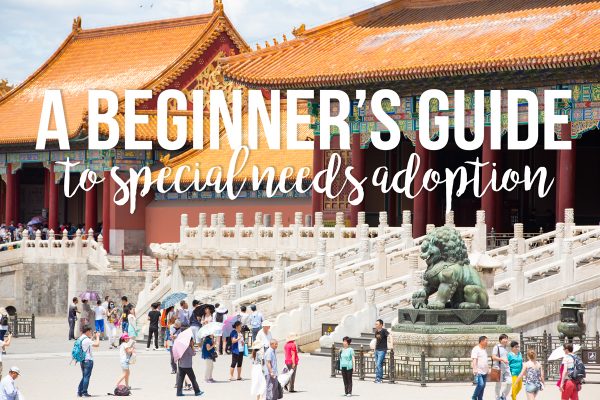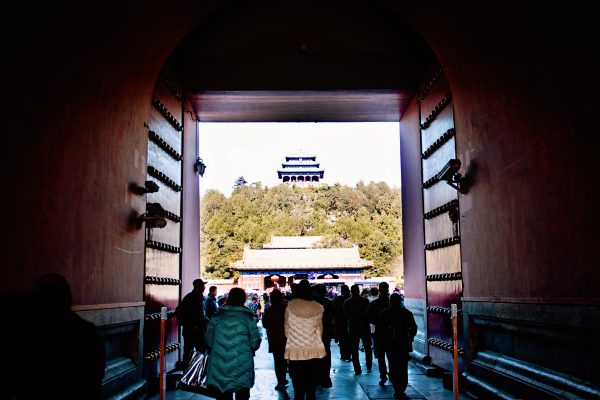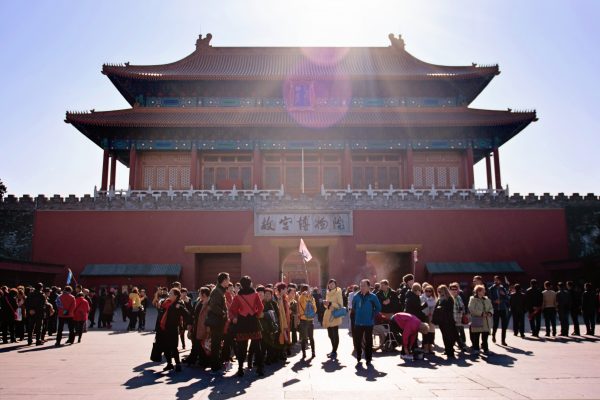Becoming a parent, no matter how it happens, is never easy. But for those just looking into the possibility of adoption it can seem positively overwhelming. It is our hope to change all that. This 8-post series will go step-by-step through the process to adopt through the special needs program for those of you who are just starting out on the adventure of a lifetime. Join us.

Here are the topics that will be covered:
1. Why China?
2. Special Needs and the Medical Conditions Checklist
3. LID vs. Special Focus
4. Picking an Agency – Part 1
5. Picking an Agency – Part 2
6. The Steps of the China Adoption Process (Acronyms Decoded)
7. Beginning the Paper Chase and Homestudy
8. Things to Read, Do and Study While You Wait
Choosing your agency may be one of the most daunting tasks of the adoption process. If you feel that you don’t know enough to make such a huge decision at the very beginning of your adoption journey, you are absolutely not alone! The 10-part NHBO series Choosing a China Adoption Agency is great place to read about this subject in much more detail. For our purposes in this series, we’ll cover this subject in one two-part post.
It might seem like an overwhelming decision, but there are many things that you can know and do to ease your mind and be confident that you are making the best choice for your family. So let’s get started!
There are many agencies licensed to complete adoptions through the China special needs program. First, understand that China is a Hague Convention country, and that all agencies must follow basic rules to ensure that both you and your child are protected from the unethical practices that have plagued international adoption programs in the past. Because of China’s participation in the Hague Convention, and because of its age and relative stability, the China special needs program has a generally good reputation for being ethical. Having said that, as you learn more about each agency, you will quickly find that not all of them are created equal.
You may start the process thinking that your number one concern will be the cost comparison, which is obviously vitally important, as you will quickly be responsible for paying upwards of thirty thousand dollars in costs and fees to facilitate your child’s adoption and to fund your travel to China. Many people quickly find, though, that they become equally concerned with how the agency functions — how it places children, whether the agency’s policies are centered on acting in the best interests of the child, and the agency’s treatment of and communication with its families. With the basic understanding that adoption agencies are businesses, and that businesses must make money to survive, in the long run, you will feel more confident in your decision when you ensure that your agency prioritizes its people — families and children — over its finances. In my opinion, the best agencies are those that are clearly child-centered agencies. My hope is that, by the time you finish reading the next two posts, you feel well equipped to ask questions of and evaluate prospective agencies, and that you will feel empowered to make the most-informed decision for your family.
A good place to start your research is in a Facebook group called Rate Your China Adoption Agency. This group is specifically designed for parents who are in process with, or who have already completed an adoption with an agency to leave honest feedback about their experiences. Agency representatives and advocates are not allowed to become members of this group and, in theory, you should get a very real assessment of each agency’s strengths and weaknesses. You will find mixed reviews of several agencies — keep in mind that adoptive parents have different priorities regarding what they are looking for in their adoption agency, so you will want to ask prospective agencies questions about things that are important to your family prior to signing that initial contract. Don’t necessarily exclude an agency because of a few negative reviews, but you may decide that you want to exclude an agency if you start to see a pattern of negative reviews across the board.
Always keep in mind that you may find your child on a waiting child list, and start the adoption process from there. Your agency might just choose you in that instance. (If you need more background information about how this happens, please go back and read the previous post in this series about file classification, and specifically the information about waiting children.) Faced with that situation, many families find that they will be able to work with any agency who holds their child’s file, and if they are not particularly impressed with the agency for whatever reason, they choose to learn as much about China adoption as possible so that they will be able to advocate for their new child and get their process moving as quickly and smoothly as possible.
Always remember that you are your child’s best advocate, and that your advocacy work starts as soon as you submit the Letter of Intent to adopt him or her.

With all of that said, let’s talk about some specific agency practices surrounding child matching, and some questions that you can ask agencies as you narrow down your choices.
a. Waiting children.
There are three major ways that agencies place some special focus children. (Here, I am specifically talking about children who appear on an agency’s photo listing or on an advocacy page or website.):
1. The first method of matching is that the first family who contacts the agency will receive the child’s file. That family will be given time to look at the file without any other families simultaneously viewing the file. This gives the family some peace of mind and sense that they are not feeling pressured to make an immediate decision. While it is advantageous to that family, this method may prolong the wait for the child, if multiple families review the file and ultimately decline to pursue the child’s adoption.
2. Alternatively, some agencies allow multiple families to review a child’s file at one time. In that case it is the first family to say “yes” to the child that the agency will allow to lock the file. This is efficient both in terms of time and cost for the agency; however, it places pressure on families to make quick decisions about a child. A family may feel pressure to say yes to a child before completing a medical review of the file. Recently, I have seen a lot of families say yes to children, and then quickly change their minds about the adoption once they realize that the child’s needs are greater than they had initially anticipated.
3. And finally, some agencies use panels when there is more than one family interested in a child. If multiple families are interested in pursuing a child’s adoption, the agency will have a committee of people who review each family to determine which of those families is best suited to adopt the child. In the Rate Your Agency group, you will see many posts in which people complain about this method of matching. It is more difficult on prospective families when they feel particularly drawn to a child. However, it allows the agency to look at prospective families in order to determine whether a family might be well-suited to parent a child—for instance, whether the family has previous experience with the child’s special need, whether the child would fit in well with the age range of the family’s existing children, whether the family is located near a specialized treatment center that would provide exceptional care for the child, etc. A compelling argument can be made that this is the most child-centered method of matching children to families.
When you are researching agencies, you will want to ask which of these methods they use when there is more than one family interested in a child. Will the agency update you on whether multiple families are reviewing a child’s file? Will you be required to pay any fees prior to match? For instance, does the agency require a payment at the time of application before you are able to review the child’s file? And if the agency uses a panel and chooses to match the child with another family, will you be refunded any fees that you paid up front?
b. LID files.
You many have already decided that your family is more comfortable waiting until your dossier has been sent to China to find your child. In this case, you will wait for what agencies call LID files — you’ll be eligible to view these children after your dossier has a log in date in China. In this instance, your agency will be looking to match you with your child based on the special needs that you have checked on your MCC.
Whether you are looking at Special Focus or LID files, you will want to consider the following:
c. Partnership files.
Does this agency have partnerships? If the agency has partnership orphanages, how many, and how many children do they place from these partnerships in a given year? Some agencies have zero partnership orphanages and are limited to pulling children’s files from the shared list. This may greatly increase your wait time, depending on the gender, age, and special needs to which your family is open.
Also talk to the agency about whether they visit with the children in their partnership orphanages. Do they lay hands and eyes on these children? How many times a year? When they visit the orphanages, does the agency bring medical staff to evaluate the children? Do they take video of the children? Do they have staff in China who will be able to provide updates for you? If you have questions while reviewing a file, will they be able to get medical or other updates of the child from the partnership orphanage? Will you be able to have any contact with the orphanage or with your child while you are in the process of completing your adoption?
d. Wait times.
If you are interested in a particular age range, and gender, absolutely ask the agency how long it will take them to match you with your child. In particular, if you are interested in a girl with minor and/or correctable needs under the age of two, you need to ask the agency how long your adoption will take. This timeline greatly varies depending on the agency.
Ask the agency about wait times in general. Ask how many children they place each month. How many families are in line ahead of your family? Ask them how they keep families apprised of changes in wait times, and if there is dedicated staff that you will be able to contact during the time before match to ask questions about wait time and other concerns. Ask the agency to look at your MCC and estimate a timeline for you based on the list of special needs that you have submitted.
e. Preliminary files.
Another important question is whether the agency uses pre-files (aka preliminary files). Some agencies get preliminary files from their partnership orphanages. These are files that have not been officially approved by the CCCWA. You will want to ask your prospective agency whether they follow this practice, and if so, they should be able to outline how their process works. The process of assigning children to families with only a pre-file varies greatly between agencies. You may want to ensure that prior to the acceptance of a pre-file, your family will know that the CCCWA has the child’s paperwork from the orphanage, and is working towards issuance of the official file.
Even if the CCCWA has the child’s paperwork and is in the process of creating that official file, you might find that you will wait for a substantial period of time for the official file to be issued by the CCCWA. Understand that until the agency gets that official file, you will not be able to write a letter of intent to adopt the child. So, essentially this will place your adoption into a holding pattern that will continue until the agency receives the file. (Of course, you will still be able to work on completing your dossier and home study in the meantime, but you will not be officially assigned to this child by the Chinese government until you submit the letter of intent to adopt.) Some people question the ethics of preliminary files. Read up on this (you can search in the Rate Your Agency FB group), and decide for yourself how you feel about the practice.

f. Shared list files. (new policy announced July 2016)
In the past week, it has been mentioned in the China adoption Facebook groups that the CCCWA has announced a new policy in which four agencies: Holt, Gladney, CCAI, and Lifeline, will receive the files of 1000+ children that currently appear on the Shared List. These files will be divided amongst the four agencies, and each agency will be responsible for updating files assigned to them, and for finding families for these children.
Apparently, each child’s photo and information will be posted on Rainbow Kids, where prospective families can view their photos and information. If a family is willing to submit LOI for a child, the agency will be required to transfer the file to that family’s agency. Although we don’t have full details on this yet, it is something to be aware of when you talk to agencies. They should be in the know on this, and able to answer your questions about what it might mean for the agency — in particular you should inquire about this new policy with agencies who pull the majority (or all) of their files from the Shared List.
Just a final note on child placement… When you’re assessing an agency’s ethics — look for things that give you pause in the waiting child sections of the agency’s website. Some agencies will allow unlimited families to view a child’s file at the same time, turning the process into sort of a free-for-all. You will want to ask the agency what they do when more than one family says yes to a child at once. Be sure that they have a policy in place to ensure that the agency’s existing families are prioritized over other families that express interest in a child.
You may see agencies leaving children on the website after they are matched. This can happen for two reasons: either the agency staff is so overwhelmed that they don’t have time to regularly update the website, or the agency is presenting you with the illusion that they place more children than they actually do. Neither are great business practices.
Beware of agencies that seem to minimize the needs of the children waiting on their website. Frankly, it will be your job to determine as much as you can about this child prior to submitting your letter of intent, and the onus will be on you to do the research to determine whether you can manage your child’s special needs. You will want to undertake this process with an agency behind you who is helping to equip you with the tools to be as prepared as possible when you meet your child in China.
OK, so having discussed some of the potential questions regarding child placement policies, stay tuned for the next post – part 2 in Picking an Agency, where we will talk about some big picture procedural differences between agencies.
As always, if you have any questions or thoughts, please leave them in the comments!


























Leave a Reply